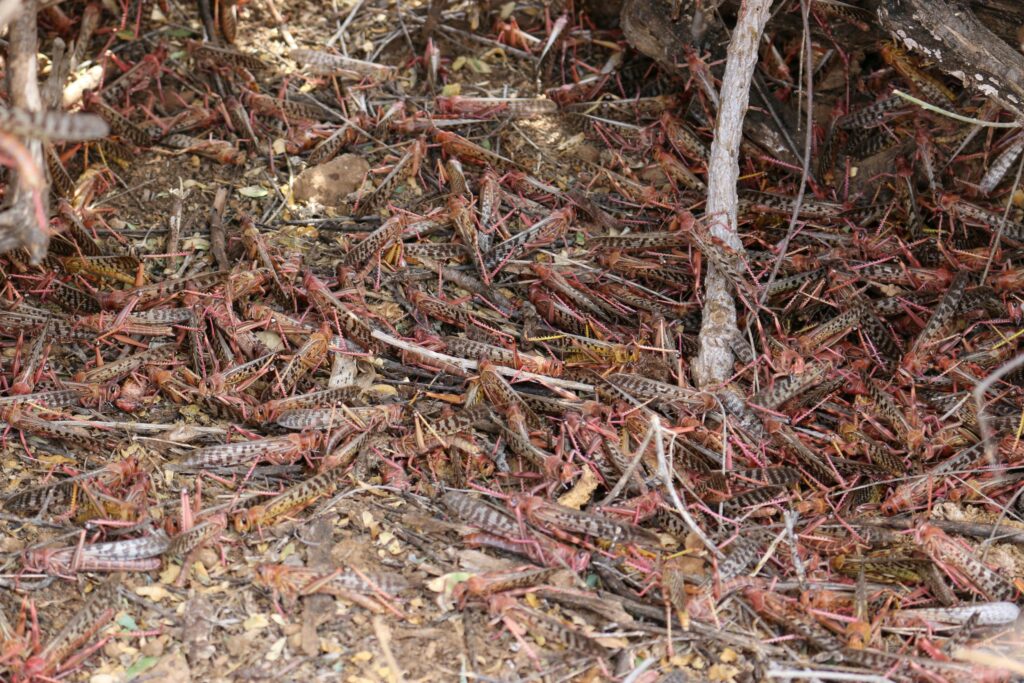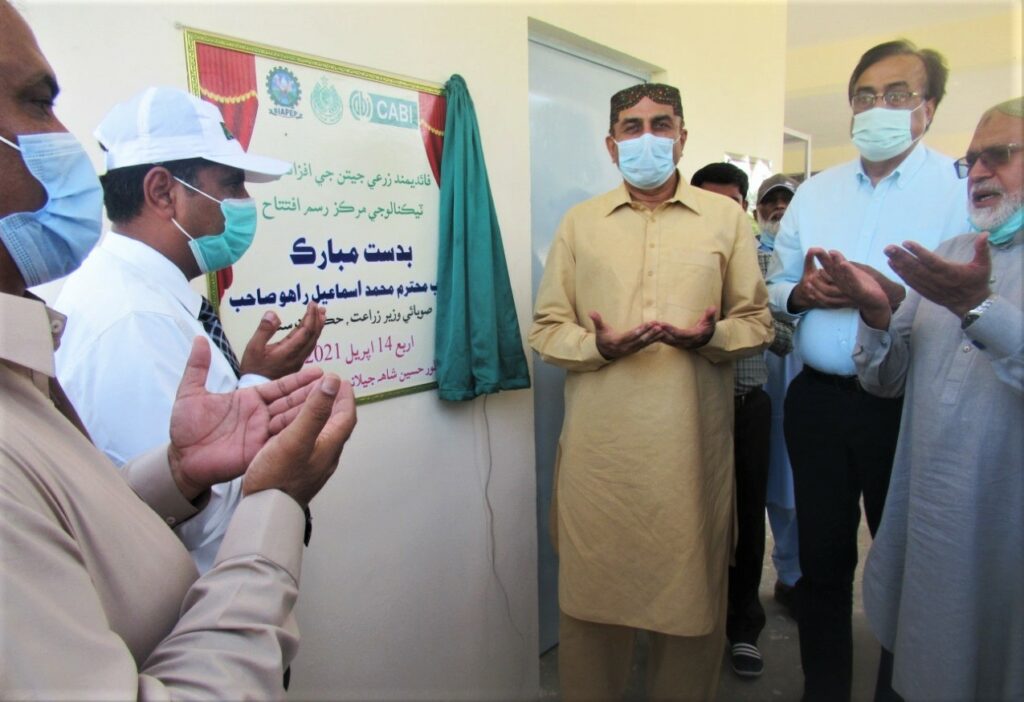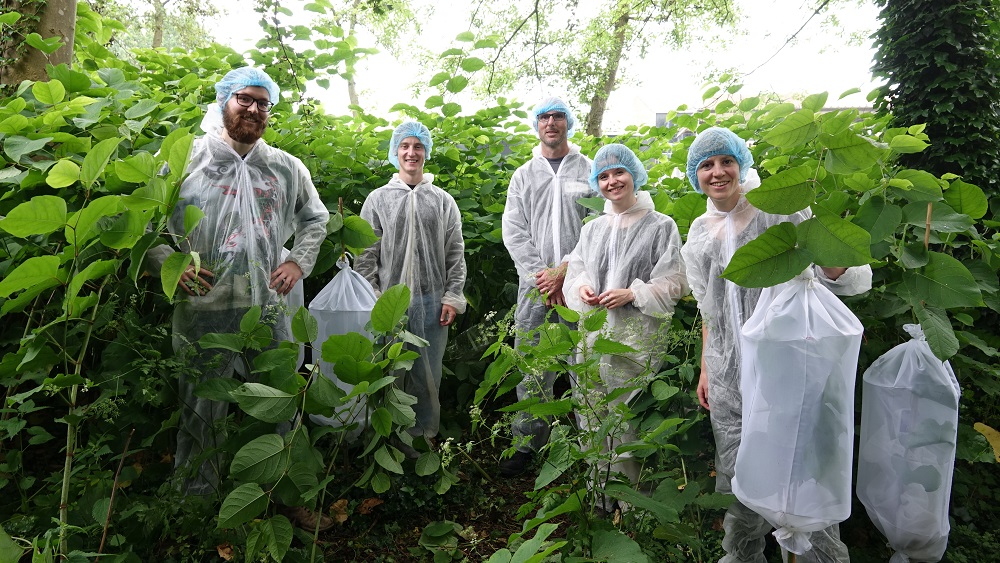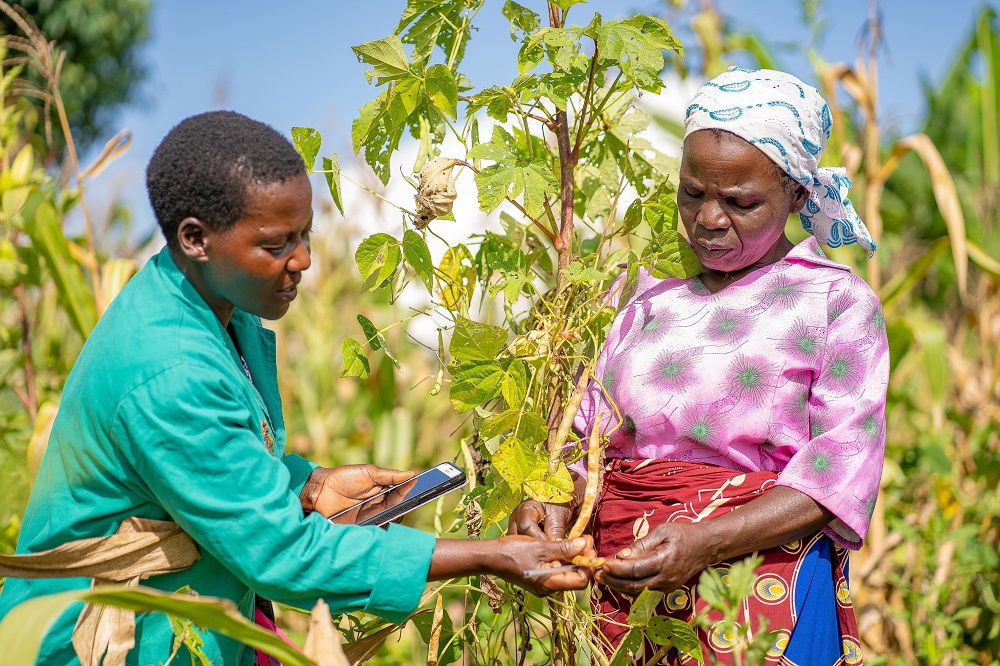CABI Blog
Category: Invasive species
You are here: CABI Blog
“Insect wasps are my army in the fight to protect my pawpaw”
June 13, 2024
David Onyango
No Comments
Meet Alfred Bolo, a pawpaw farmer Alfred is a father of two children, an agricultural officer by profession and a practising farmer in Kwale County, Kenya. He grows over 400 pawpaw (papaya) trees on his farm. Every week, Alfred harvests up to 400 kgs of papaw fruit, earning him an income of approximately Ksh. 22,000…
CABI helps celebrate 100 years since the discovery of entomopathogenic nematodes
April 18, 2024
Stefan Toepfer, Wayne Coles
No Comments
CABI joined the international community of entomopathogenic nematode experts from science and the biocontrol industry to celebrate the 100 years since the discovery of these important biological control agents.
COP27: helping farmers adapt to climate change
November 16, 2022
Jonathan Casey
No Comments
As COP27 continues this week, adaptation is high on the agenda, writes Jonny Casey, CABI’s Climate Change Manager. How can smallholder farmers adjust their practices to adapt to higher global temperatures? A key topic is inclusive, locally-led adaptation approaches to landscape governance. This is a vital component of resilience-building, which CABI has championed through initiatives…
New documentary charts restoration of Redonda Island from ‘lunar landscape’ to ecological tropical paradise
November 15, 2022
Wayne Coles
No Comments
A new documentary produced by the Environmental Awareness Group (EAG) in Antigua and Barbuda has charted its restoration of the country’s Redonda Island from that resembling a ‘lunar landscape’ to an ecological tropical paradise.
International Day for Biological Diversity: the rising threat of invasive species
May 20, 2022
Wayne Coles
No Comments
On Sunday 22 May 2022 the world celebrates International Day for Biological Diversity – a day in which the global community is called to re-examine our relationship to the natural world.
CABI podcast
March 10, 2022
Donna Hutchinson, Joanna Slezak, Laura Hollis, Toby Penrhys-Evans
No Comments
Welcome to the CABI podcast, a series dedicated to agricultural science and how it can improve lives and address the challenges faced by people around the world.
New podcast series highlights CABI’s work on tackling invasives
September 14, 2021
Toby Evans
No Comments
The first of a new four-part CABI Podcast mini-series, which interviews CABI experts on the threats posed by four different invasive species, has been released. The first episode, on desert locusts, will be followed on a weekly basis by episodes on fall armyworm, Himalayan balsam, and toadflax.
Agricultural Minister endorses establishment of innovative biological control at farms in Sindh province of Pakistan
July 21, 2021
Ashfaque ali Dhaunroo
1 comment
The Agricultural Minister for Sindh province in Pakistan, Mr Muhammad Ismail Rahoo, has officially endorsed a Memorandum of Understanding (MoU) which will see the establishment of Natural Enemy Field Reservoirs (NEFRs) to fight pests of fruits, vegetables and other economic crops – including cotton and rice.
Biological control for Japanese knotweed comes into sharp focus during second release of psyllid
June 30, 2021
Wayne Coles
2 comments
Research to find a suitable and safe biological control to fight the scourge of Japanese knotweed is stepping up a gear in the Netherlands after the second release of a psyllid – Aphalara itadori – and our very own Dr Janny Vos, Partnerships Development Director, was on hand with camera for this picture special.
The persistent threat of emerging plant disease pandemics to global food security
June 8, 2021
Wayne Coles
No Comments
Global plant disease outbreaks are increasing, threatening the food security of vulnerable people in many parts of the world, writes Wayne Coles, PR Manager, CABI. A nutritious and stable food supply can help lift them out of poverty and improve their health. However, the spread of plant diseases, exacerbated by climate change and the global…
Subscribe to blog
DISCLAIMER
Views expressed in contributions do not necessarily reflect official CABI positions.
Archives
Categories
- Agriculture and International Development
- Veterinary and Animal Sciences
- Climate change and biodiversity
- Publishing
- Value chains and trade
- Crop health
- Environmental Sciences
- Human Sciences
- Tourism, Hospitality and Leisure
- Food and nutrition security
- Plant Sciences
- Gender and youth
- Digital development
- Development communication and extension
- Economic development
- Invasive species
- CABI Bioservices
- One Health










